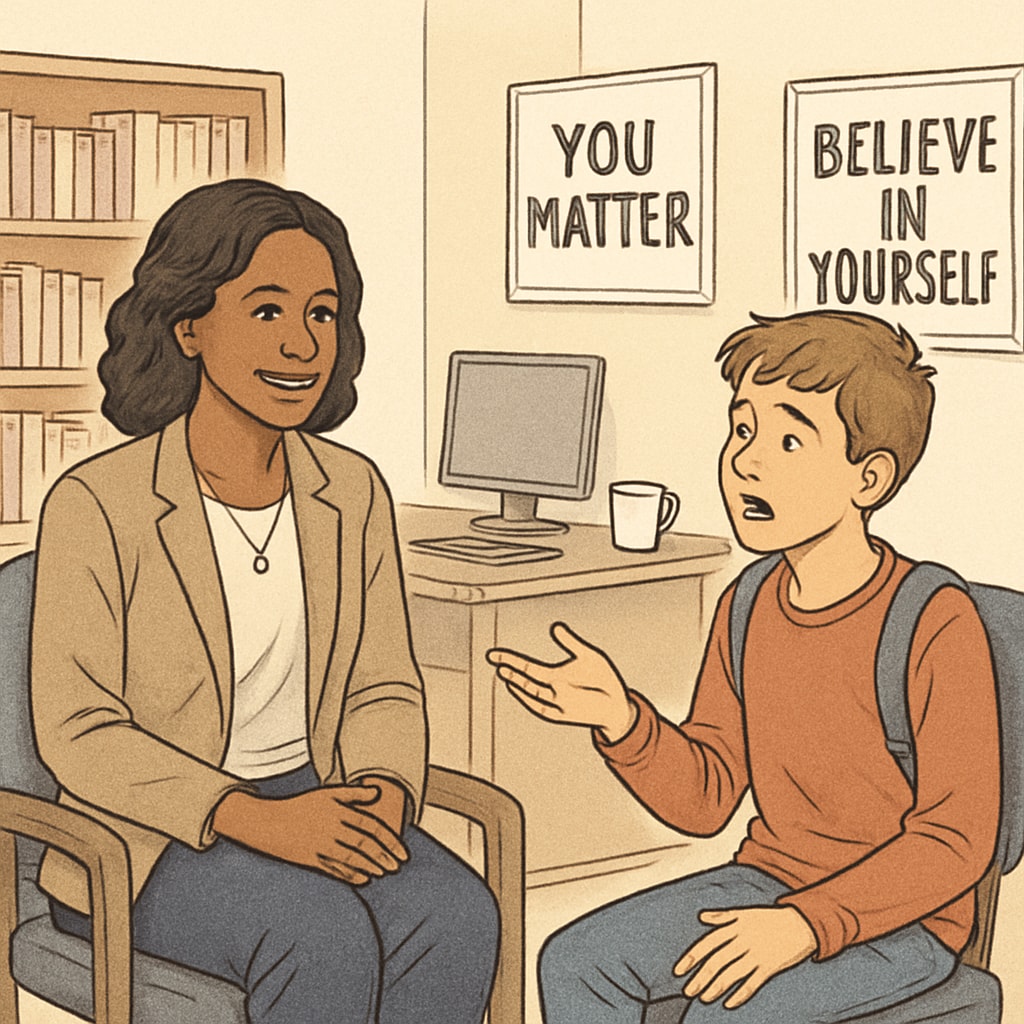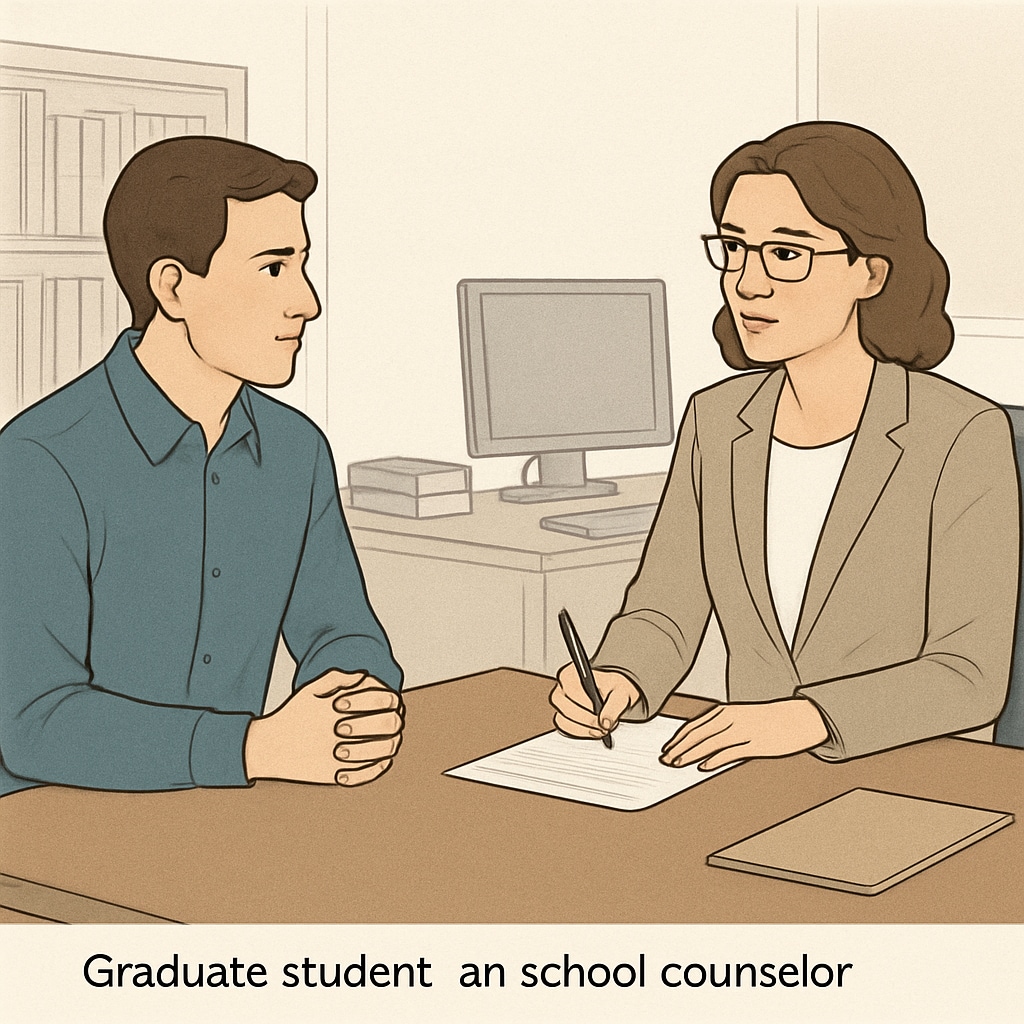Interviewing school counselors is a vital step for graduate students in school counseling programs. It not only helps students gain real-world insights but also enhances their understanding of the profession. In this article, we will discuss why these interviews are essential, provide strategies for connecting with middle and high school counselors, and explore how to turn these experiences into valuable professional development tools.
Why Interviewing School Counselors Matters
School counseling is a dynamic field that requires both theoretical knowledge and practical skills. Speaking directly with active professionals offers graduate students a chance to bridge this gap. Interviews can provide firsthand insights into the challenges counselors face, the tools they use, and the strategies they employ to support students.
For example, school counselors often address issues ranging from academic guidance to mental health support. By discussing these topics directly with practitioners, graduate students can better understand the multifaceted nature of the role. Additionally, these conversations can illuminate current trends and challenges within the field, such as the integration of technology or the increasing emphasis on mental health awareness.

Finding and Approaching School Counselors
Connecting with the right school counselors may seem daunting at first, but with a structured approach, it becomes manageable. Here are some steps to consider:
- Leverage Your Network: Start by reaching out to professors, classmates, or alumni who may have connections in the education sector. They can often provide introductions to school counselors willing to participate in interviews.
- Use Professional Platforms: Websites like LinkedIn are excellent for identifying school counselors. Tailor your message to explain your academic goals and the purpose of the interview.
- Contact Schools Directly: Visit the websites of local schools to find counselor contact information. Craft a polite and concise email introducing yourself and explaining your request.
- Join Professional Associations: Many organizations, such as the American School Counselor Association (ASCA), have directories or forums where you can connect with professionals.
When reaching out, always be respectful of the counselor’s time. Offer flexible scheduling options and clearly outline the topics you wish to discuss. This not only demonstrates professionalism but also increases the likelihood of securing an interview.

Making the Most of the Interview
Once you have scheduled an interview, preparation is key. Here are some tips to ensure a productive session:
- Research the Counselor’s Background: Learn about the school they work at and their professional experience. This will help you tailor your questions and show genuine interest.
- Prepare Open-Ended Questions: Focus on questions that encourage detailed responses. For example: “What strategies do you use to support students with anxiety?”
- Bring Recording Tools: With the counselor’s permission, record the conversation to ensure you can revisit the details later. Alternatively, take thorough notes.
- Be Punctual and Professional: Treat the interview as you would a job interview. Dress appropriately, arrive on time, and express gratitude for their time and insights.
During the interview, listen actively and follow up on interesting points the counselor raises. The goal is to learn from their experience, so allow the conversation to flow naturally while staying focused on your objectives.
Turning Interviews into Professional Development Opportunities
After the interview, it’s essential to reflect on what you’ve learned and apply it to your professional journey. Here’s how:
- Analyze Key Takeaways: Review your notes or recordings to identify the most valuable insights. Consider how these align with your academic studies and career goals.
- Incorporate Lessons into Your Practice: If the counselor discussed specific strategies or tools, explore how you can integrate these into your future counseling sessions.
- Build a Professional Network: Maintain contact with the counselor. A simple thank-you email expressing your appreciation can lay the foundation for a lasting professional relationship.
Additionally, consider sharing your findings with classmates or professors. This not only reinforces your learning but also contributes to the collective knowledge of your program.
In conclusion, interviewing school counselors is an invaluable experience for graduate students in school counseling programs. By following the strategies outlined above, you can connect with professionals, gain practical insights, and enhance your preparation for a successful career in this rewarding field.
Readability guidance: Use short paragraphs and lists to summarize key points. Ensure a balanced use of active voice and transitional phrases like “for example,” “in addition,” and “as a result.” Distribute ideas evenly to maintain reader engagement.


